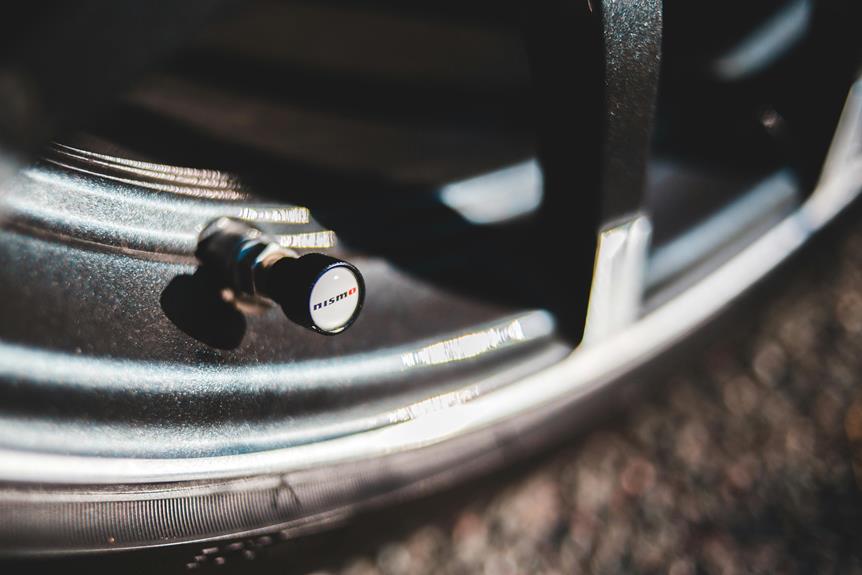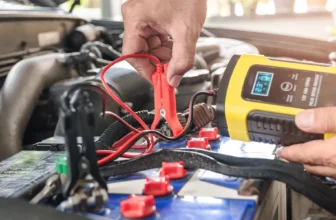
You might be surprised at how crucial maintaining the correct tire pressure is for your vehicle. It's not just about keeping your tires inflated; it goes beyond that. The ideal tire pressure can impact various aspects of your driving experience, from safety to fuel efficiency and even the lifespan of your tires. Understanding the significance of this seemingly small detail can make a significant difference in your everyday commute and long-term vehicle maintenance. So, are you ready to discover the secrets behind the ideal tire pressure for your vehicle and why it truly matters?
Importance of Proper Tire Pressure
Maintaining the correct tire pressure is crucial for ensuring optimal performance and safety on the road. Proper tire pressure affects various aspects of your vehicle, including handling, fuel efficiency, and tire longevity.
When your tires are underinflated, they flex more, leading to increased friction between the tire and the road. This additional resistance can cause your tires to wear out faster and also reduce fuel efficiency, as your engine has to work harder to overcome the drag.
Conversely, overinflated tires can result in a harsher ride, reduced traction on the road, and uneven tire wear. In extreme cases, overinflation can even make your tires more susceptible to damage from road hazards.
Effects on Vehicle Performance
Proper tire pressure directly impacts how your vehicle performs on the road. When your tires are inflated to the correct pressure, your vehicle handles better, providing you with improved control and stability. Underinflated tires can lead to poor handling, especially around corners, as they're more prone to rolling over or losing traction. On the other hand, overinflated tires may result in a harsher ride, causing discomfort for you and your passengers.
Maintaining the right tire pressure also affects your braking distance. Properly inflated tires ensure that your vehicle can come to a stop efficiently when you apply the brakes, reducing the risk of accidents. Additionally, the correct tire pressure helps distribute the vehicle's weight evenly, which can prevent premature wear on your tires. By keeping an eye on your tire pressure and ensuring it's at the recommended level, you can enhance your vehicle's overall performance and safety on the road.
Impact on Fuel Efficiency
To maximize your vehicle's fuel efficiency, ensuring your tires are properly inflated is crucial. When your tires are underinflated, more of the tire surface touches the road, creating additional friction that requires more energy to overcome. This increased rolling resistance can lead to decreased fuel efficiency, causing you to spend more on gas than necessary.
On the other hand, overinflated tires can also negatively impact fuel efficiency by reducing the tire's contact patch with the road, potentially leading to uneven wear and decreased traction.
Maintaining the correct tire pressure specified by your vehicle's manufacturer not only helps in improving fuel efficiency but also ensures safer driving conditions. Properly inflated tires allow for optimal fuel consumption by reducing the energy needed to propel your vehicle forward.
Influence on Tire Longevity
Ensuring your tires are properly inflated not only impacts fuel efficiency but also significantly influences the longevity of your tires. When your tires are underinflated, they tend to wear out unevenly and more quickly. This happens because underinflated tires cause increased friction with the road surface, leading to more heat buildup. The excess heat can break down the internal structure of the tire, weakening it over time. On the other hand, overinflated tires are more prone to damage from road hazards and bumps, reducing their lifespan.
Proper tire pressure ensures that the tire wears evenly across the tread, extending its longevity. By maintaining the recommended tire pressure, you can help distribute the vehicle's weight more evenly, reducing strain on individual areas of the tire. This balanced wear pattern helps your tires last longer, saving you money in the long run by delaying the need for premature replacements. Regularly checking and adjusting your tire pressure can significantly contribute to extending the lifespan of your tires.
Safety Concerns and Risks
Maintaining the correct tire pressure is crucial for ensuring your safety on the road. Driving with underinflated tires increases the risk of accidents due to poor handling, reduced traction, and longer braking distances. When tires aren't properly inflated, the sidewalls flex more, leading to overheating and potential tire blowouts. This sudden loss of air pressure can cause you to lose control of your vehicle, especially at higher speeds, putting your safety and that of others at risk.
On the other hand, overinflated tires have less contact with the road surface, decreasing traction and causing uneven wear, which can also compromise your safety while driving. Additionally, overinflated tires are more prone to punctures and can make your ride feel bumpier, affecting your comfort and overall driving experience. By maintaining the recommended tire pressure levels, you can significantly reduce the likelihood of accidents and ensure a safer journey for yourself and those sharing the road with you.




